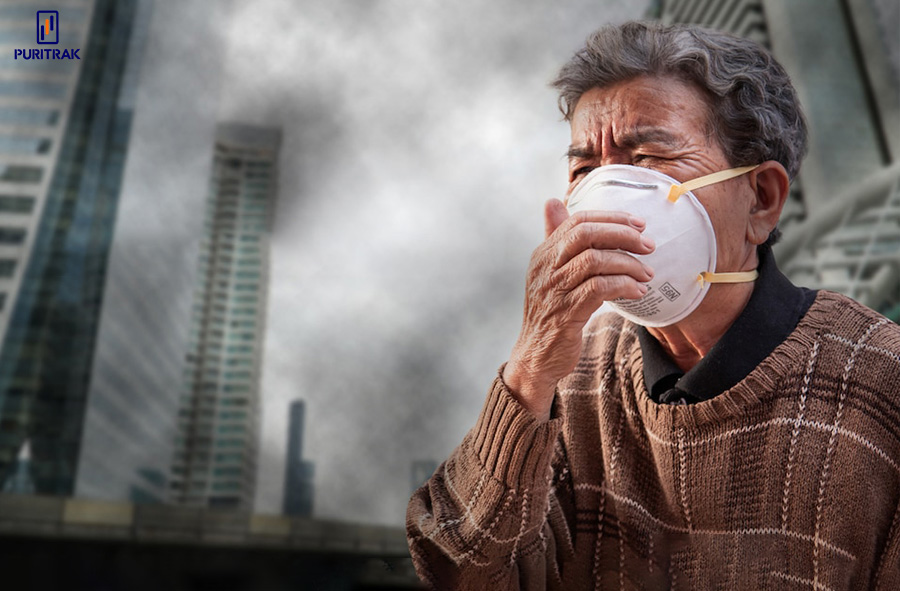
“Air pollution” is a ubiquitous term in Vietnam, commonly encountered in various media outlets and everyday conversations among family and colleagues. Particularly in Hanoi, from the start of 2023 until now, there have been instances where air pollution levels have soared to rank among the top 10 most polluted cities globally. Join Puritrak to explore the intricacies of air pollution, including its causes and effects.
1. What is air pollution?
Air pollution is a condition when the air in the natural environment or in urban areas is contaminated with harmful substances, impurities, and emissions from human activities and natural processes. These pollutants include dust particles, toxic gases, chemical compounds, and other agents that can make the air unhealthy and can harm human health and the environment.
See more: Air pollution factors associated with mental disorders in children
2. What causes air pollution?
To better understand air pollution, we need to know what causes air pollution so that we can take measures to prevent and protect the surrounding air environment.
The causes of air pollution are varied and encompass a range of human activities and natural phenomena. Below are some primary contributors to air pollution:
Vehicle Emissions: Cars, airplanes, ships, and other modes of transportation emit pollutants such as CO2, NOx, SO2, and volatile organic compounds. These emissions are significant contributors to air pollution.

Industrial activities: Manufacturing plants and factories release exhaust gases, dust particles, and other chemical compounds that pollute the air. Industries such as steel production, chemicals, and waste treatment are especially serious air polluters.
Fossil fuel use: Using coal, oil, gas, and other fossil fuels in energy production, heating, and cooking processes releases emissions and polluting compounds. pollution – this is also the cause of environmental pollution.

Waste treatment: If waste is not treated properly, such as burning waste or burying it improperly, it will produce toxic emissions and toxic gases that pollute the air.
Agricultural production: Use of fertilizers, veterinary pharmaceuticals, and forest fires can cause emissions of NH3 (ammonia), CH4 (methane), and other substances. These compounds, when produced, will have negative effects on the environment.
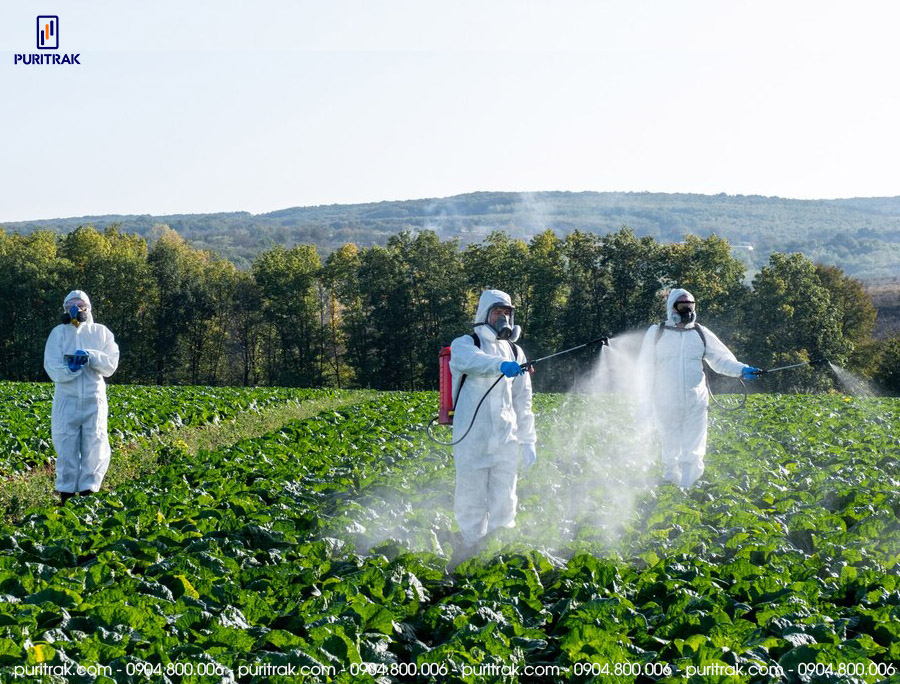
Production and use of chemical products: The production, use, and disposal of chemical products in the home, such as room sprays and cleaning agents, can create harmful emissions that are also a cause of harm. The cause is air pollution.
Burning forests: Burning forests or natural forest fires can release CO2 and toxic gases, which is the reason for air pollution.

Daily living activities: Indoor activities such as cooking and using tobacco are also causes of air pollution.
Natural processes: Certain natural events such as sandstorms, volcanic activity, and climate change can create impurities and emissions that pollute the air.
3. What are the effects of air pollution on human health?
Air pollution has many significant effects on human health. Here are some of the main effects of air pollution on health:
Lung disease and respiratory problems: Exhaust fumes from vehicles and industrial sources often contain toxic gases such as NO2 and SO2. These substances can irritate the airways, cause respiratory infections, pneumonia, and increase the risk of lung diseases such as asthma and chronic obstructive pulmonary disease (COPD).
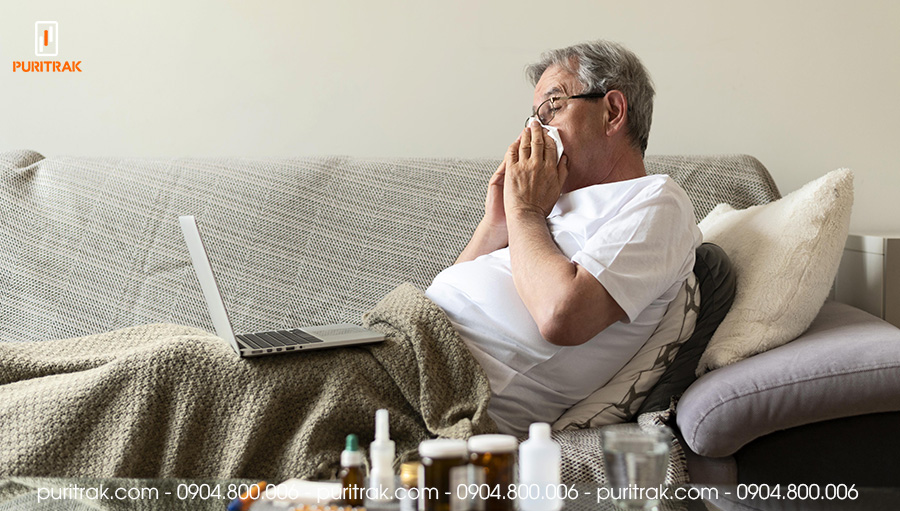
Allergies and skin problems: Air pollution can increase allergy symptoms such as eye infections, nasal swelling, itching, and nasal congestion. It can also cause skin irritation and increase the risk of skin conditions such as eczema.
Cardiovascular disease: Fine dust particles in polluted air can enter the circulatory system, causing inflammation and cardiovascular problems. Air pollution has been linked to an increased risk of heart disease and stroke.

Gastrointestinal diseases: Dust particles and chemical compounds can be swallowed into the stomach and intestines, causing digestive problems and facilitating gastrointestinal diseases.
See more: The placenta is seriously affected by air pollution
Impact on children: Children and fetuses are the groups most susceptible to air pollution. Pollution can cause pneumonia in children, causing damage to the development of their lungs and respiratory system, as well as affecting physiological and psychological development.
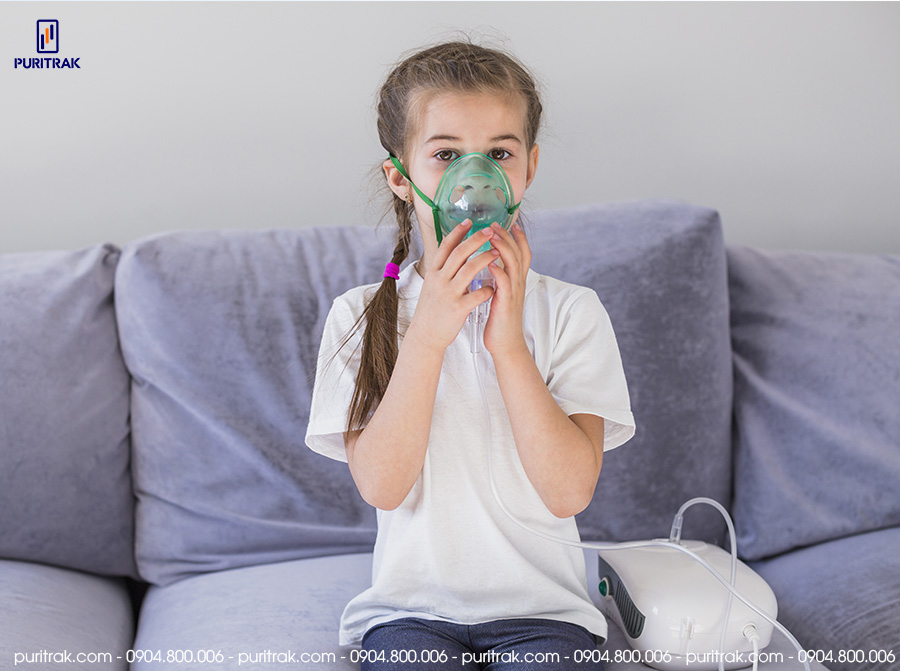
Increased risk of premature death: Air pollution has been linked to an increased risk of premature death in the elderly and those with weakened immune systems.
Psychological problems and mental health: A polluted environment can cause stress and have a negative impact on people’s mental health, contributing to psychological problems such as anxiety and depression.

4. Solutions to improve indoor air quality
Improving indoor air quality is an important way to protect your health and create a healthier living environment. Here are some solutions to improve indoor air quality:
Using an air purifier: this is the most effective solution to improve air quality. Air purifiers have the ability to remove dust particles and polluting impurities from the air and provide necessary humidity. This helps prevent dryness of the skin, eyes and throat, especially in dry environments.
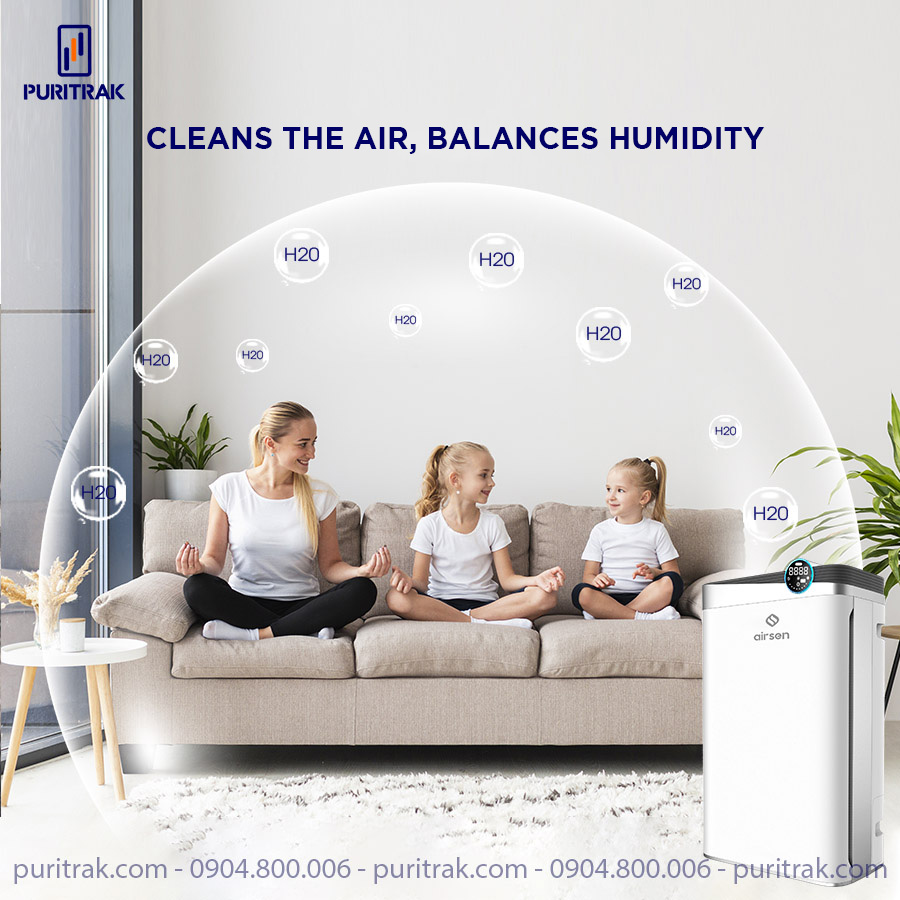
Limit the use of chemical products: Using chemical products in the home such as room sprays and detergents can create compounds that pollute the air. Limit their use and replace them with natural or unscented products.
See more: Simple tips to identify air pollution with the naked eye
Use green plants: Indoor plants have the ability to absorb impurities and produce oxygen. Plants such as Sansevieria trifasciata is a good examples. Make sure you care for your plants properly to maintain their effectiveness..
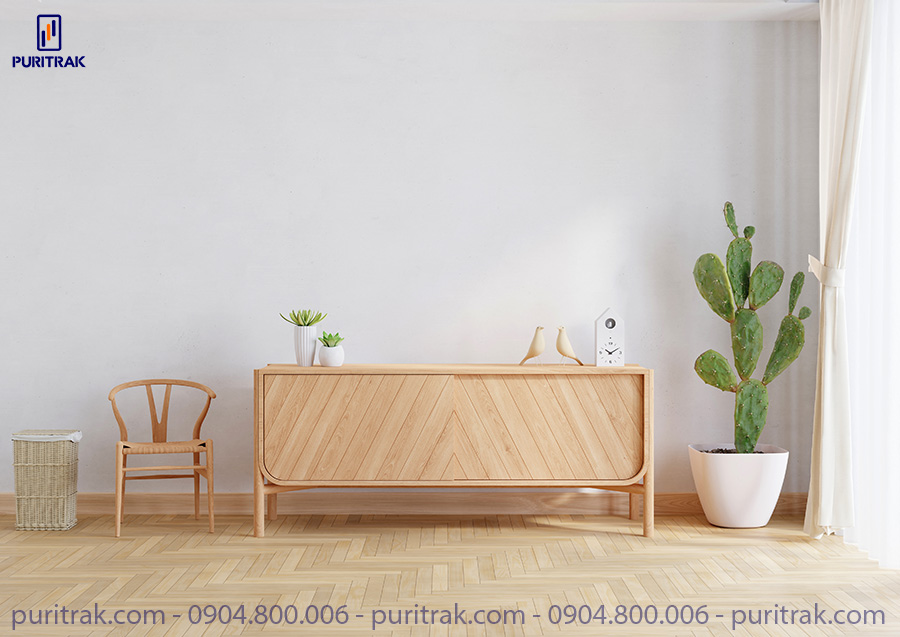
Use clean fuel: If possible, use clean and efficient fuel for cooking and heating. This helps reduce harmful emissions and impurities.
Ventilate regularly: Make sure windows and doors are ventilated regularly to bring fresh air into the room and remove polluted air.
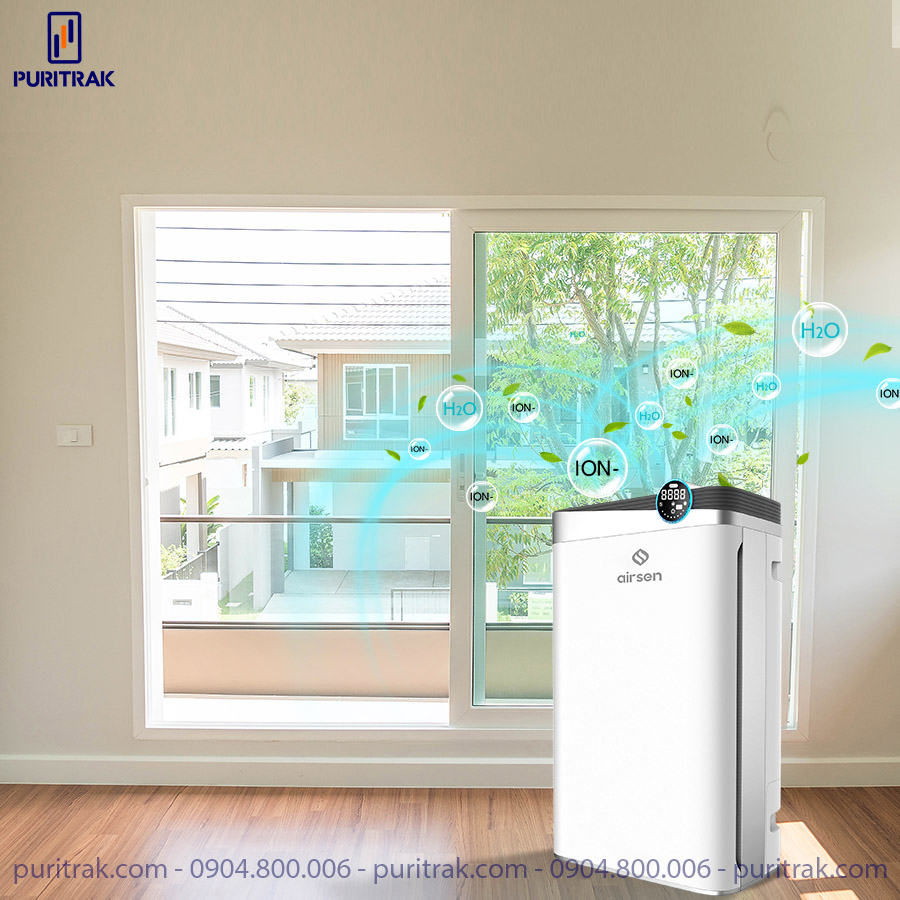
Eliminate sources of contamination: Identify and remove potential sources of contamination in the room such as asbestos, toxic work environments, or old air filtration systems.
Use an air filtration system: For large rooms or locations with severe air pollution, it may be necessary to use a special air filtration system to remove impurities and harmful emissions.
Assess air quality: Use an air quality measuring device to assess pollution levels and track improvements.
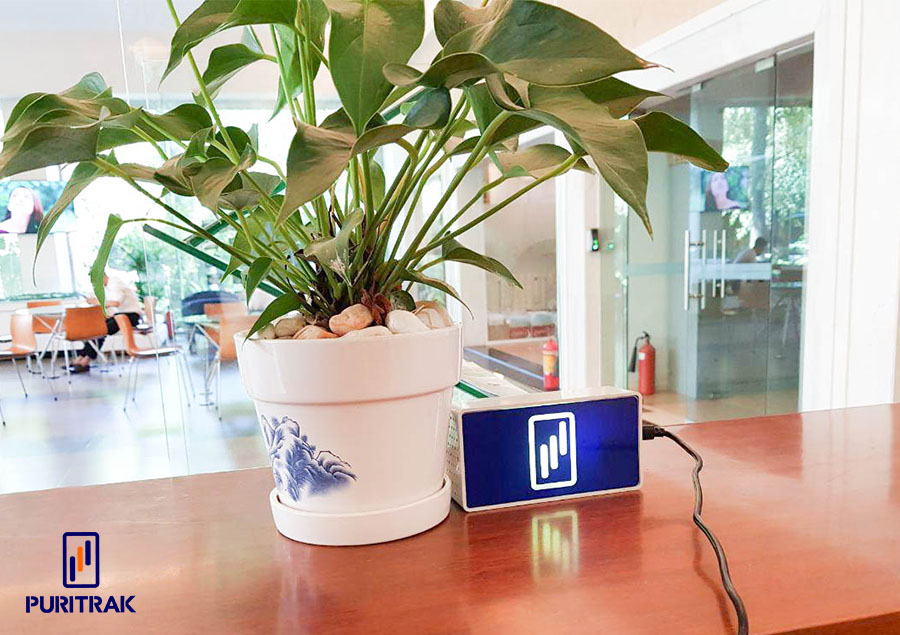
Above is all the information related to air pollution. Hopefully the above information will help you in the process of improving the air quality in your room.
If you need further support and information related to the air filtration system, please contact us using the information below to have Puritrak’s experienced technical department advise you on the right product for you. Thank you for reading the article!
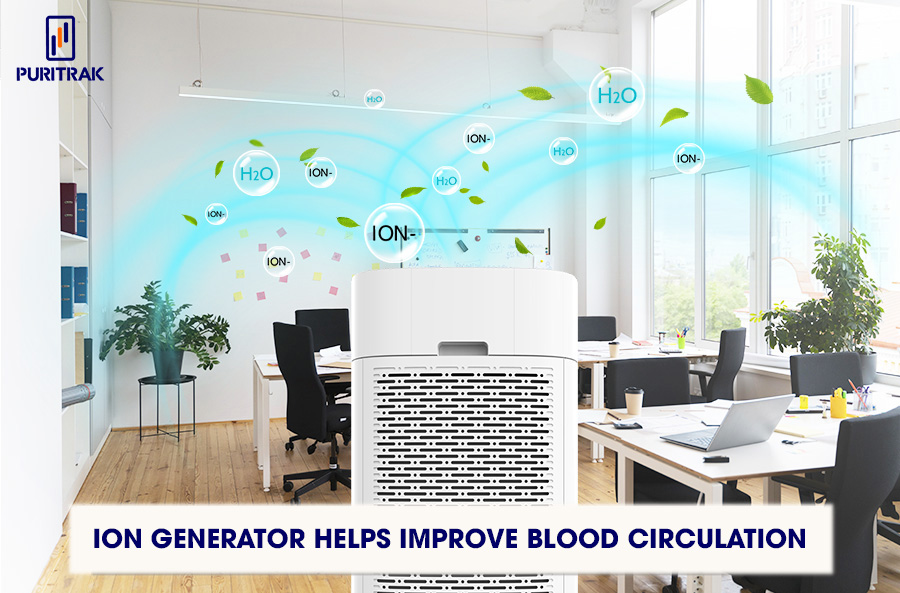
Contact Info:
Hotline: 0904.800.006
Website: puritrak.com
Email: [email protected]
Fanpage: Puritrak


